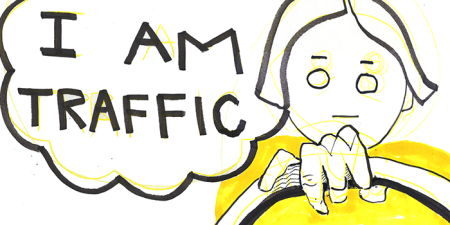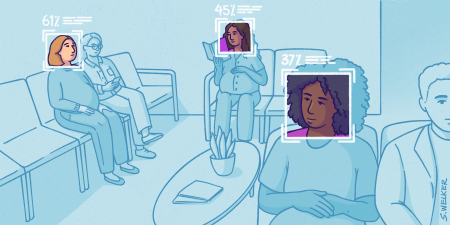Abstract
The comic Donuts illustrates an irony at play: a patient’s gift of a box of donuts is offered in thanks just as a physician recommends “more vegetables and less refined sugars.”
Figure. Donuts

Media
Pen on paper with digital color, 11" x 14".
Donuts is based on my mother’s family practice. Almost constantly, and especially around the holidays, her clinic break room table hosts an abundance of cookies, cakes, and candies from grateful, generous patients. Sweets, especially when homemade or bought from a favorite baker, “don’t collect dust,” as my mother likes to say.
Ethically, this comic is a visual and narrative investigation of how basic human appetites might be expressed and responded to in clinical settings. Sugar is a nearly universal pleasure and, like many pleasures, can be hard to resist and easily overindulged. In weight management conversations, clinicians educate patients about unhealthy, “empty calories” offered by refined sugars. Depending on a patient’s goals, refined sugars should be consumed in moderation or avoided entirely. “Eat more vegetables and fewer donuts and other sugary sources” is a commonly heard recommendation intended to help a patient modify habits formed by human appetites we all look to satiate, despite health needs that require diet consciousness.
This comic represents one strategy for balancing kindness with sincerity by posting a handwritten sign to express thanks but to maintain consistency in health messaging and, perhaps, to exert control over which appetites gifts might provoke among recipients. How such messaging is received also deserves ethical consideration. We might wonder, for example, what the sign says about how clinicians feel about temptation and how they respond to their own appetites. The sparse use of color in the comic might suggest how hard it is for our eye to resist a stark contrast, especially one that appeals to the delights of consumption signified by a package with a beautiful pink ribbon, candy in a jar, or frosting on a donut.



